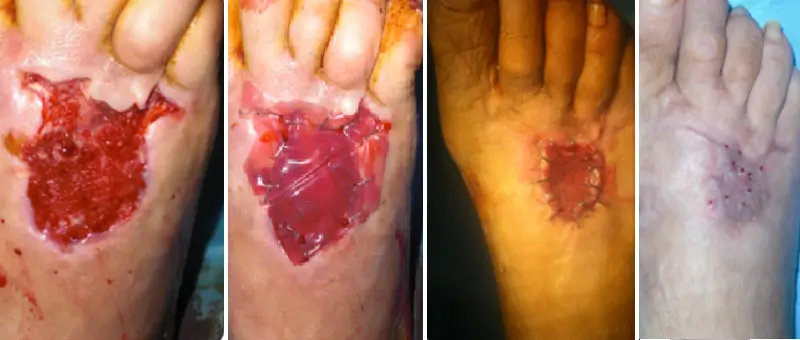Specializations
Regenerative Surgery
Regenerative surgery
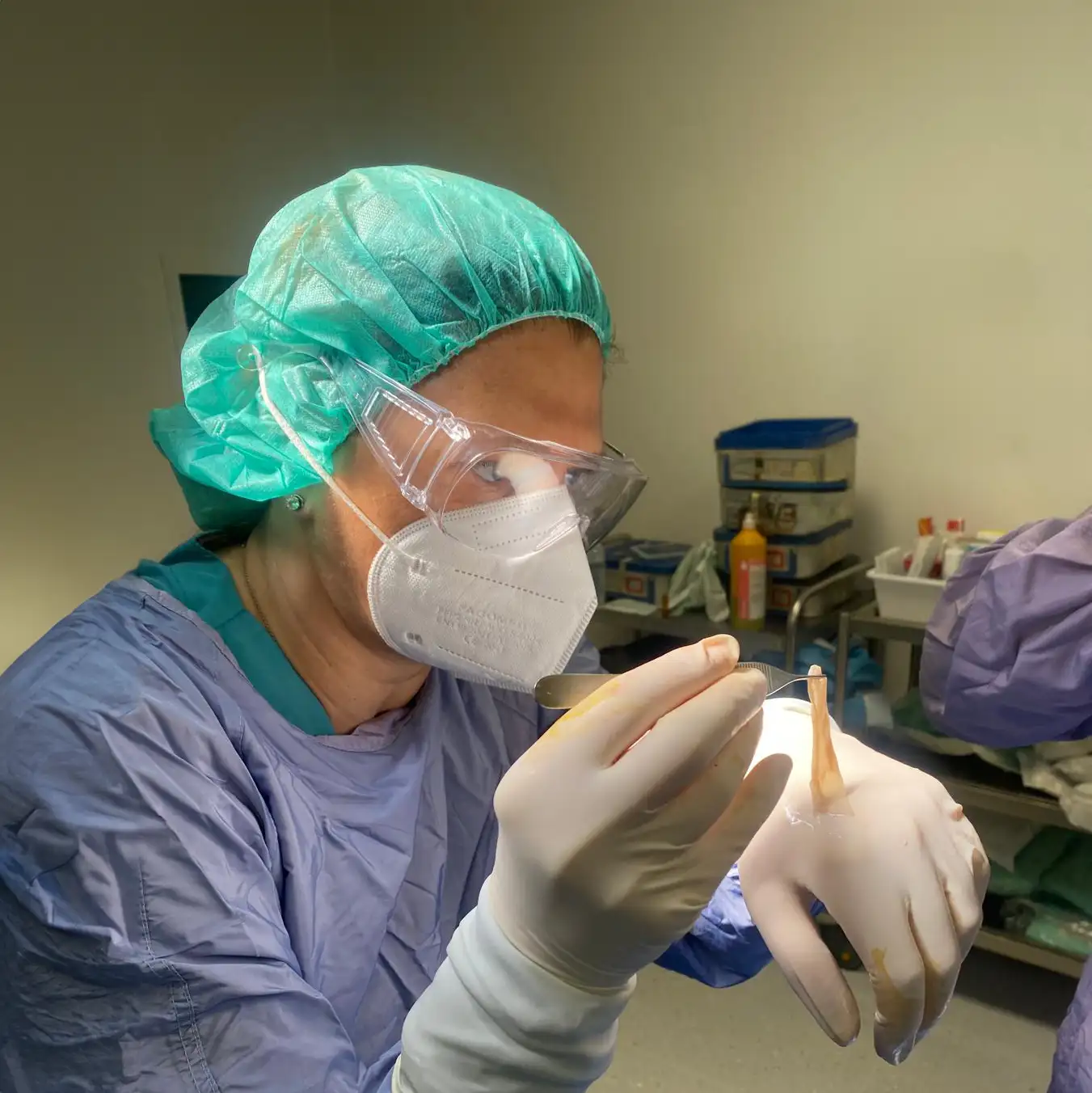
The care and treatment of ulcers also include surgical procedures, not only in terms of surgical debridement but also through Regenerative Surgery. This innovative surgical branch involves the use of biomaterials and autologous cells in order to “reawaken” cellular processes that are no longer responsive to the phases of tissue regeneration.
Regenerative surgery consists mainly of minimally invasive procedures that can greatly accelerate wound healing. To this end, autologous patient cells such as adipocytes or blood-derived cells and biomaterials are used to obtain concentrates. These are employed to restore deficient volumes, enhance tissue neoangiogenesis, stimulate tissue regeneration, and cover osteo-tendinous exposures.
In particular, the combined use of autologous cells and biomaterials (used as a growth “scaffold”) creates a favorable environment for reactivating the cellular signaling network, with the ultimate goal of regenerating tissue and healing the wound.
REGENERATIVE SURGERY
Techniques
PRP (Platelet-Rich Plasma)
Autologous platelet concentrate
Lipo-transfer
Transfer of autologous adipocytes, enriched or not, via liposuction
APBMNC
Concentrated mononuclear cells from autologous peripheral blood
Autologous skin grafts
In suspension or otherwise
Dermal substitutes
Animal-derived, used alone or in combination with the above techniques
Advanced dressings and regenerative surgery must be considered integral parts of the treatment of chronic ulcers of various origins.
The ultimate goal is to provide targeted therapies for healing and, above all, to offer patients cutting-edge care with innovative techniques, often required at multiple levels of intervention.
01
Pre-/post-burn (from ice)
and surgical wound dehiscence
treated with PRP and hyaluronic acid, result after 30 days
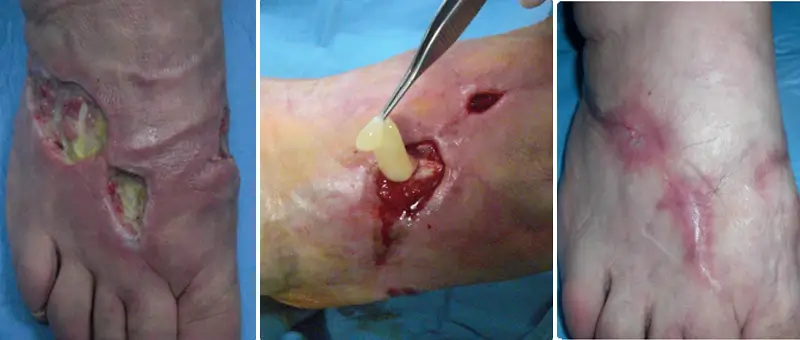
02
Preoperative ulcer
in diabetic patient
Autologous skin graft + dermal substitute, result after 50 days
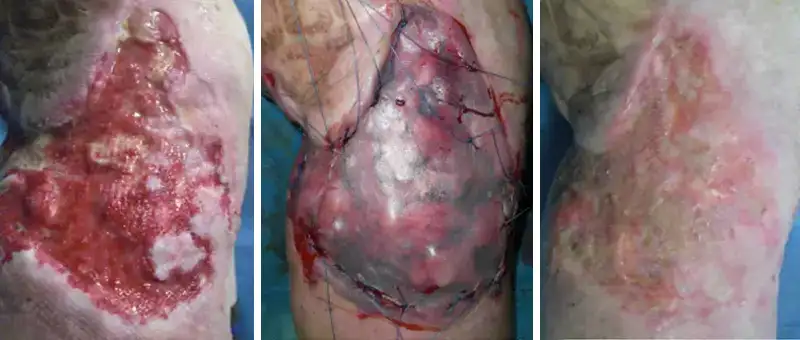
03
Pre- and
post-traumatic wound
Treated with PRP, hyaluronic acid, and autologous fat, result after 45 days
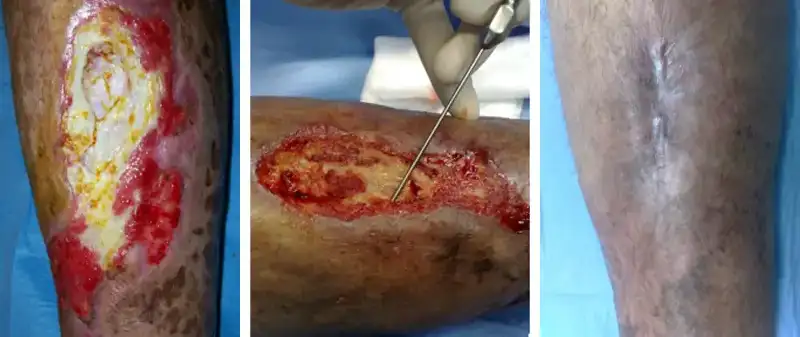
04
Diabetic foot
patient
Severe tissue loss with osteo-tendinous exposure and multi-resistant infection to antibiotic therapy. Treated with Autologous Peripheral Blood Mononuclear Cells obtained via selective filtration system.

05
Dermal
substitute
Ulcer in diabetic patient, application of regenerative dermis followed by successful autologous skin graft take
